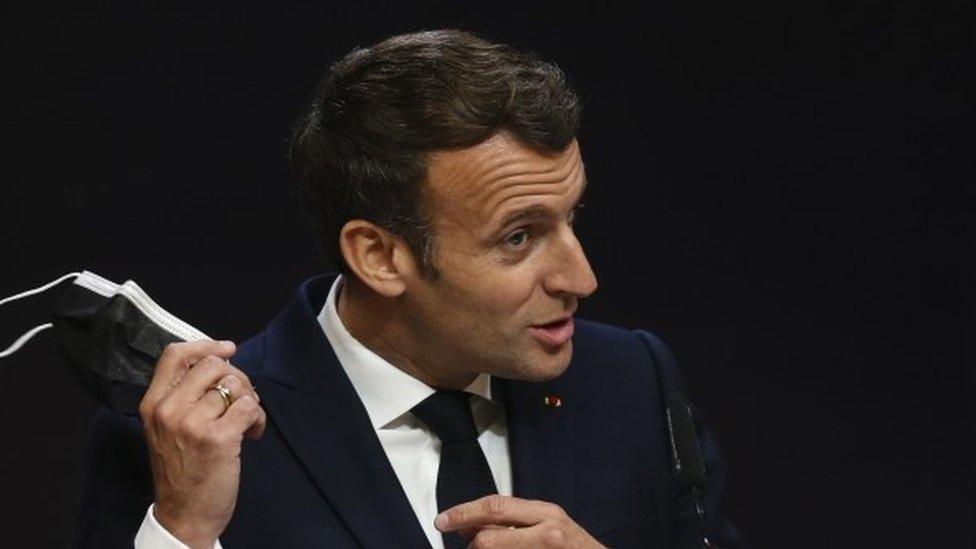France election: Leading candidates clash over burkini in TV debate
- Published
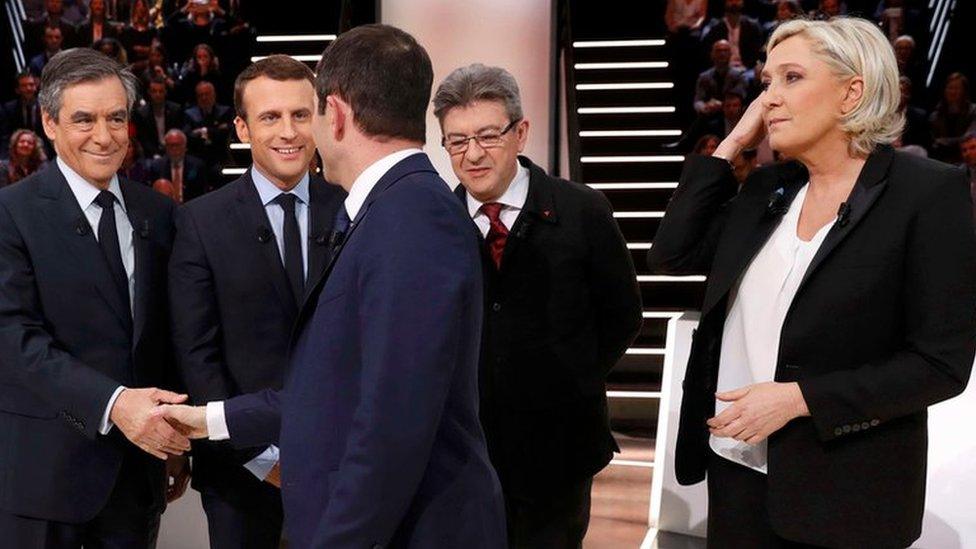
Francois Fillon, Emanuel Macron, Benoit Hamon, Jean-Luc Melenchon and Marine Le Pen before the debate
The two leading candidates in the French election have traded barbs in an occasionally fiery TV debate.
Far-right candidate Marine Le Pen and centrist Emmanuel Macron clashed over the full-body "burkini" swimsuit worn by some Muslim women.
Ms Le Pen said multiculturalism must end, but was accused by Mr Macron of making enemies of Muslims in France.
Polls suggest Ms Le Pen will get the most votes in the first round, but Mr Macron will defeat her in the run-off.
The other three candidates in Monday's debate were centre-right contender Francois Fillon, and left-wingers Benoit Hamon and Jean-Luc Melenchon.
All five traded punches on the big issues for France, including jobs, terrorism and the country's place in Europe.

Watching the debate: BBC's Hugh Schofield in Paris
Trying to guess who won a presidential debate is a mug's game. No-one messed up, they all made their points, so people around the country will draw their own conclusions. For what it is worth, here are a few personal thoughts.
First, Emmanuel Macron had a good night. If anyone was hoping he'd fail to make the grade, they were wrong. On at least two occasions, he carried the offensive against Marine Le Pen in calm but forceful tones.
Marine Le Pen was less good. Her stridency was off-putting. Fans won't have minded, but any victorious presidential candidate needs to reach out beyond the comfort zone, and she does not seem able to.
Francois Fillon did not shine either. He was presidential and grave, but at times he appeared almost detached from the debate.
Apart from Mr Macron, the other winner was the far-leftist Jean-Luc Melenchon, whose razor wit and pungent oratory commands attention. Benoit Hamon the Socialist was at times eclipsed.
Read more on this story

During the debate, Mr Macron said he would change the country's traditional political divisiveness, while Ms Le Pen said she wanted a France that was not a "vague region" of the EU or subservient to Chancellor Angela Merkel's Germany and later vowed to stop all immigration.
Mr Fillon said that if elected, he would be the president of what he called the "national recovery".
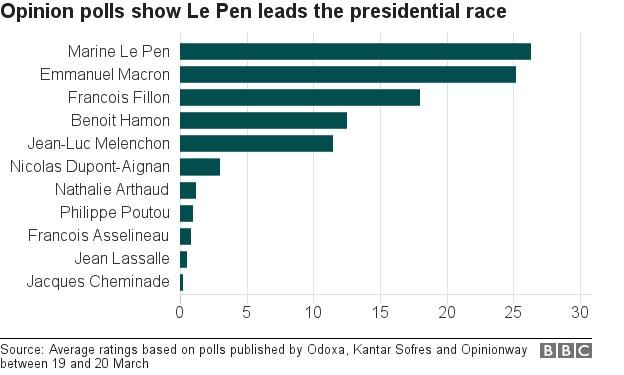
If there was a winner in this debate, focus groups suggested it was Mr Macron, the BBC's Lucy Williamson in Paris reports.
He was keen to take on Ms Le Pen, arguing that the burkini was a "public order matter" and not a challenge to France's tradition of secularism as Ms Le Pen suggested.
Several southern French resorts banned the swimsuit last summer before France's highest administrative court found the ban breached fundamental freedoms.
Mr Macron also appeared to take a swipe at Mr Fillon. After accusing Ms Le Pen of defamation, he said justice would prevail as it would in the case of "certain presidential candidates".
That was an apparent reference to judicial investigation into allegations that Mr Fillon paid his wife hundreds of thousands of euros for parliamentary work she did not do.
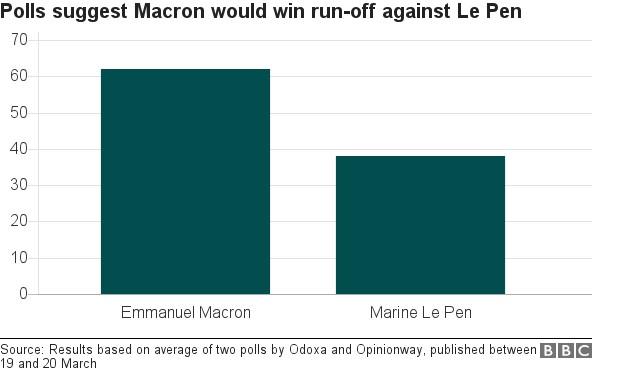
Mr Fillon has denied the allegations and refused to quit the race, complaining he is the victim of a "political assassination".
The candidates also clashed over how to tackle unemployment, which has long stood at about 10%.
Ms Le Pen - hoping to broaden her appeal - called for a "patriotic economy" and protectionist measures favouring French companies.
But Mr Fillon said her plans would cause "economic chaos".
On the left, Mr Hamon - hoping to differentiate himself from Mr Melenchon, who wants to attract undecided voters - called for the introduction of a universal basic income, which he said was the only innovative idea in the election campaign.
Voters go to the polls on 23 April. If no candidate wins more than 50% of the votes, the two top contenders will go into a second round on 7 May.
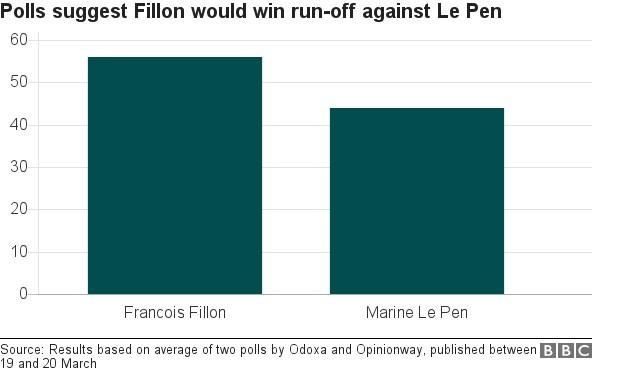
- Published3 May 2017
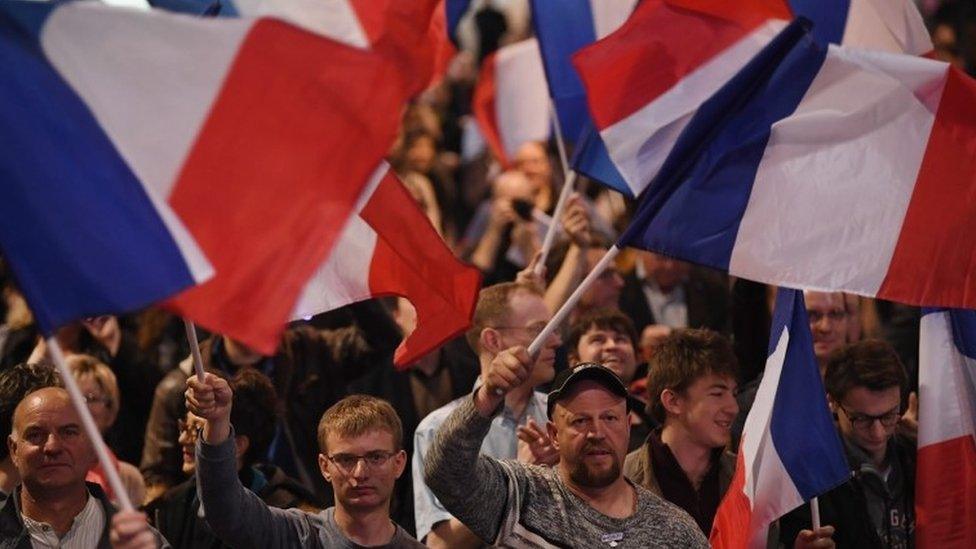
- Published28 March 2017
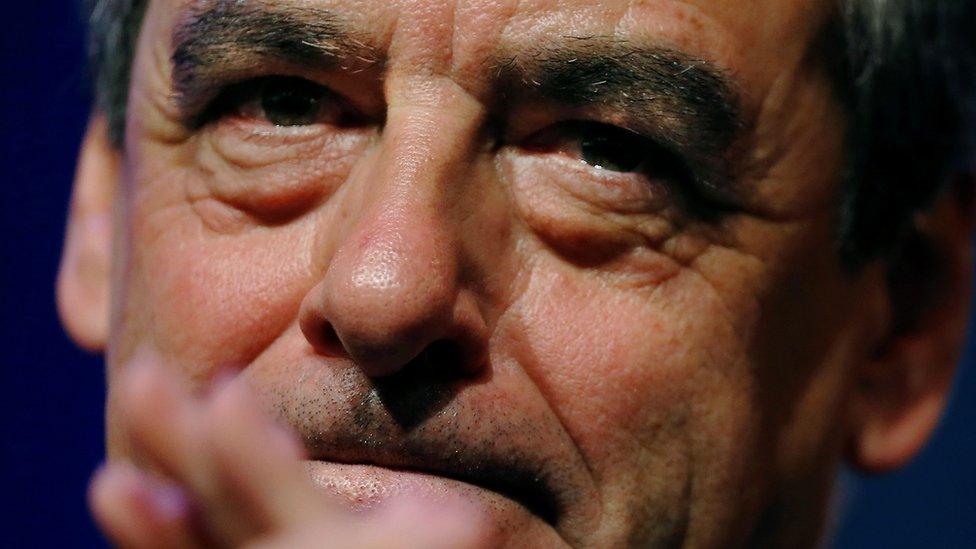
- Published11 May 2021
